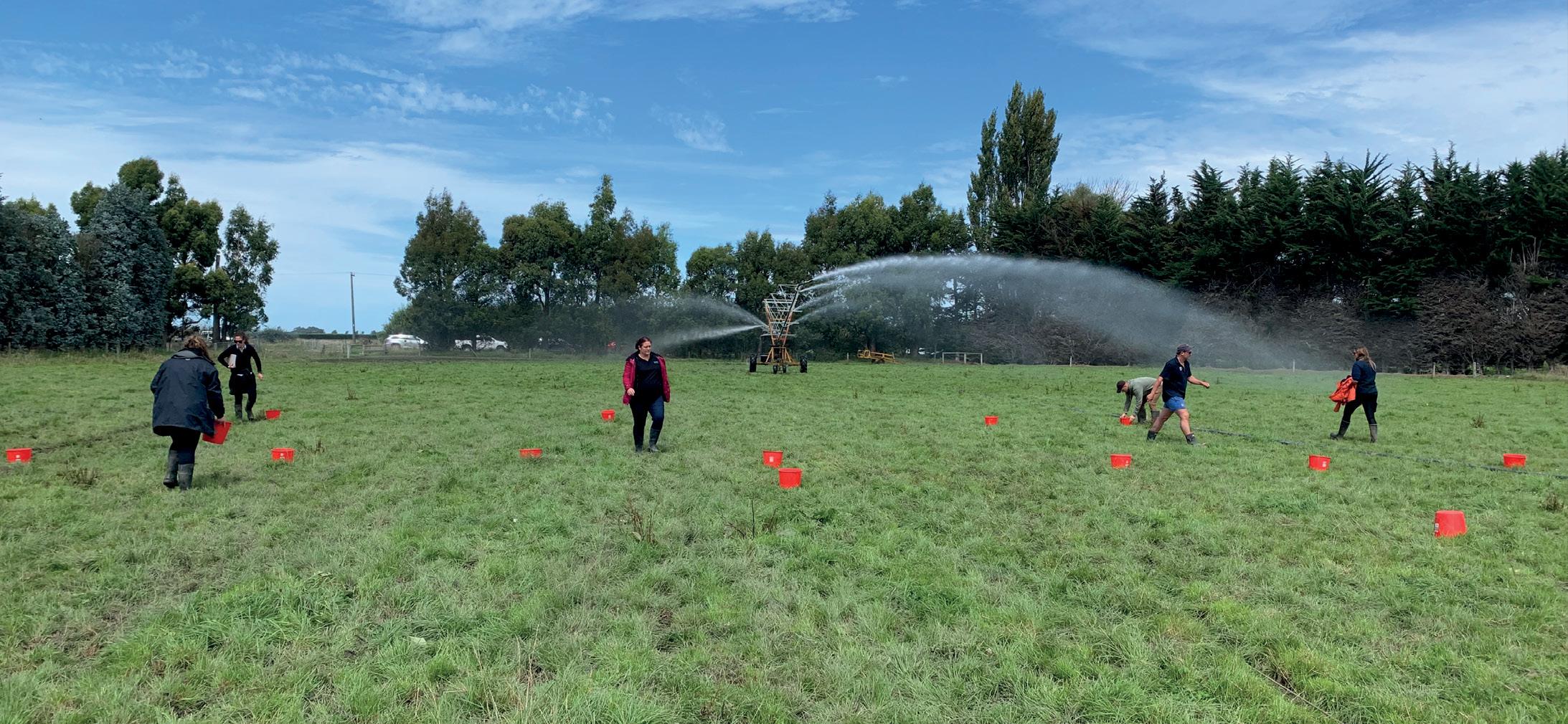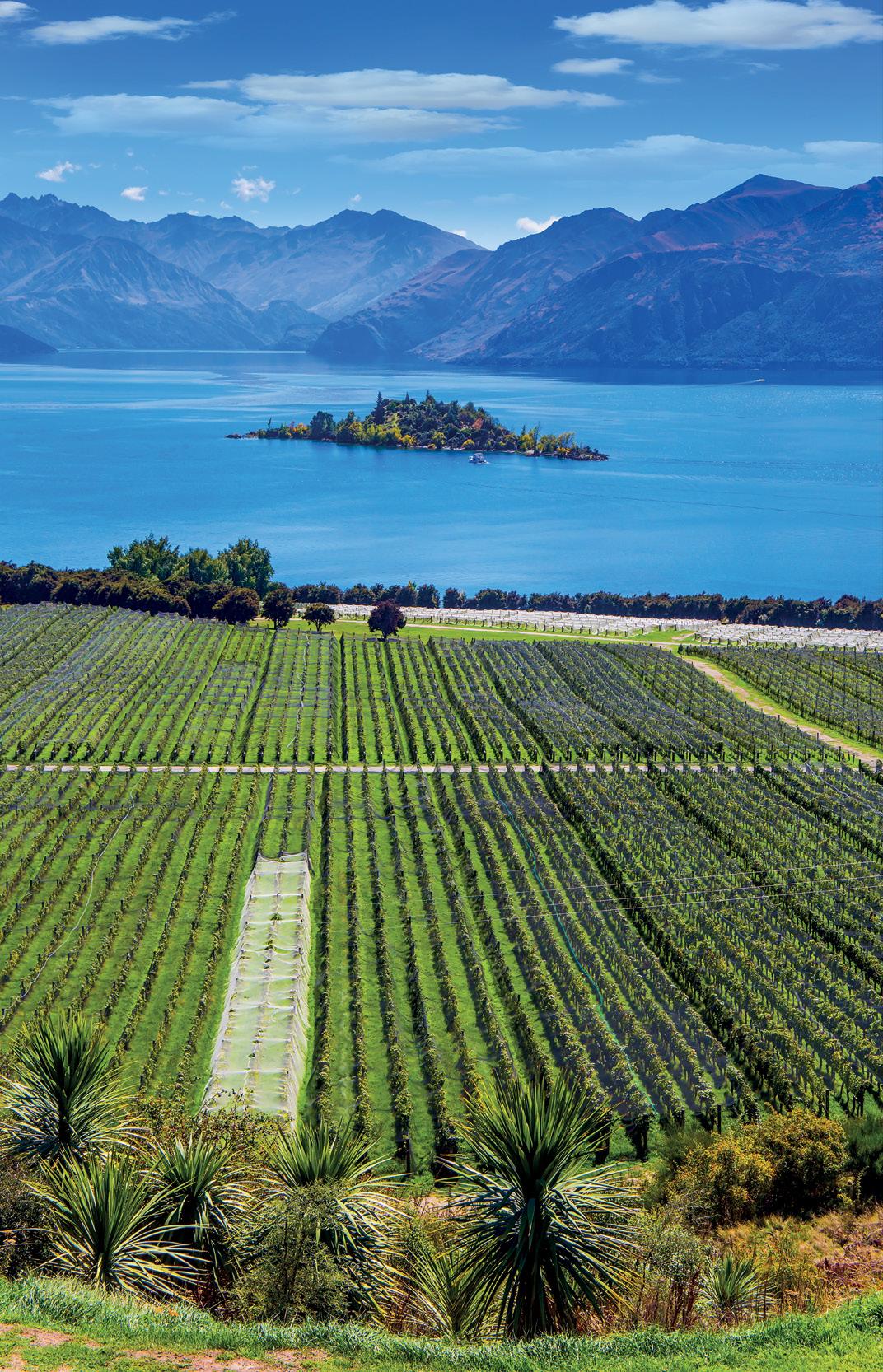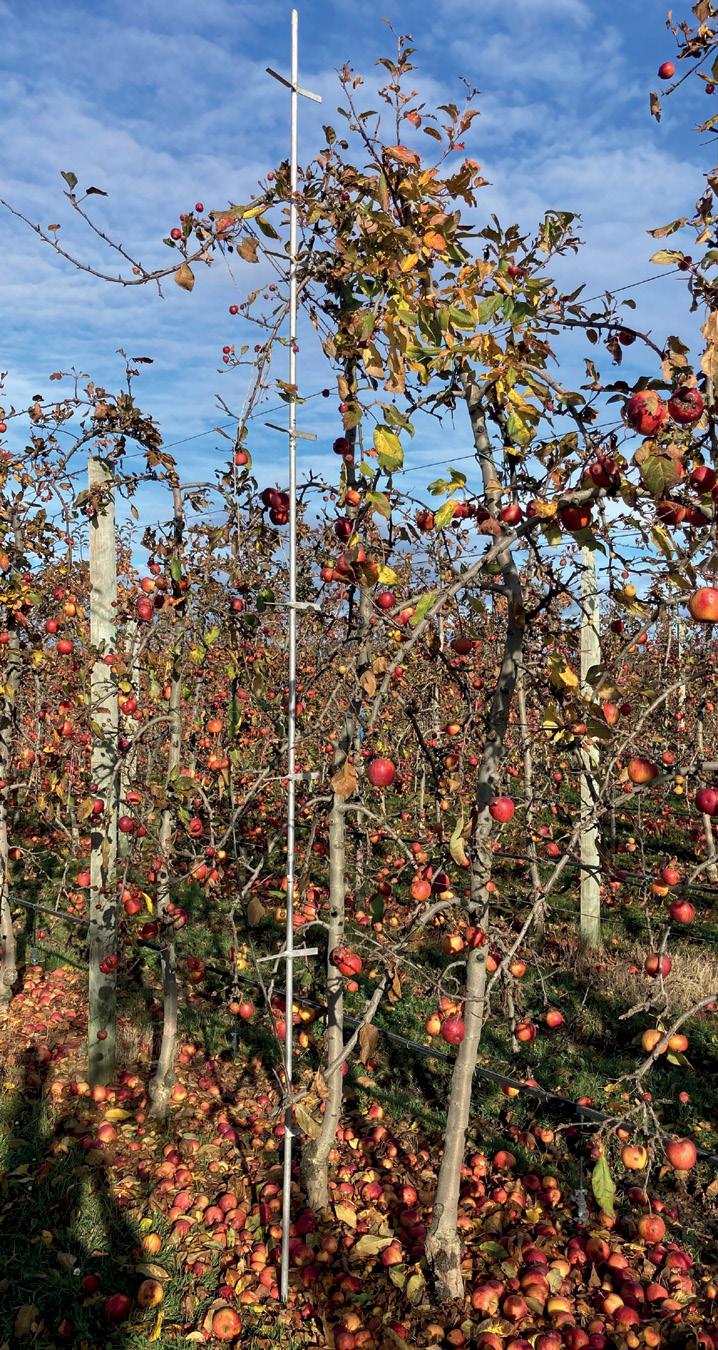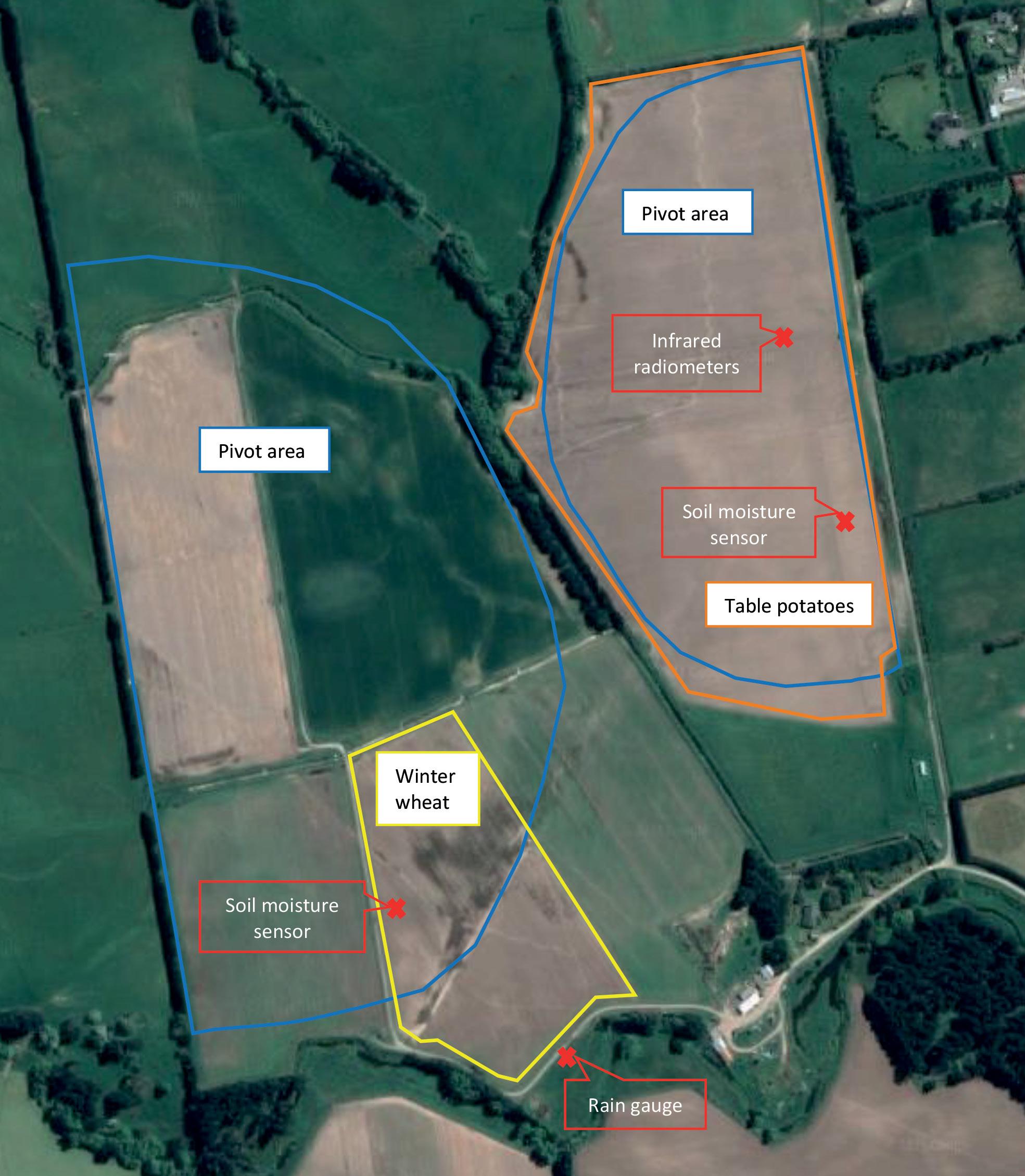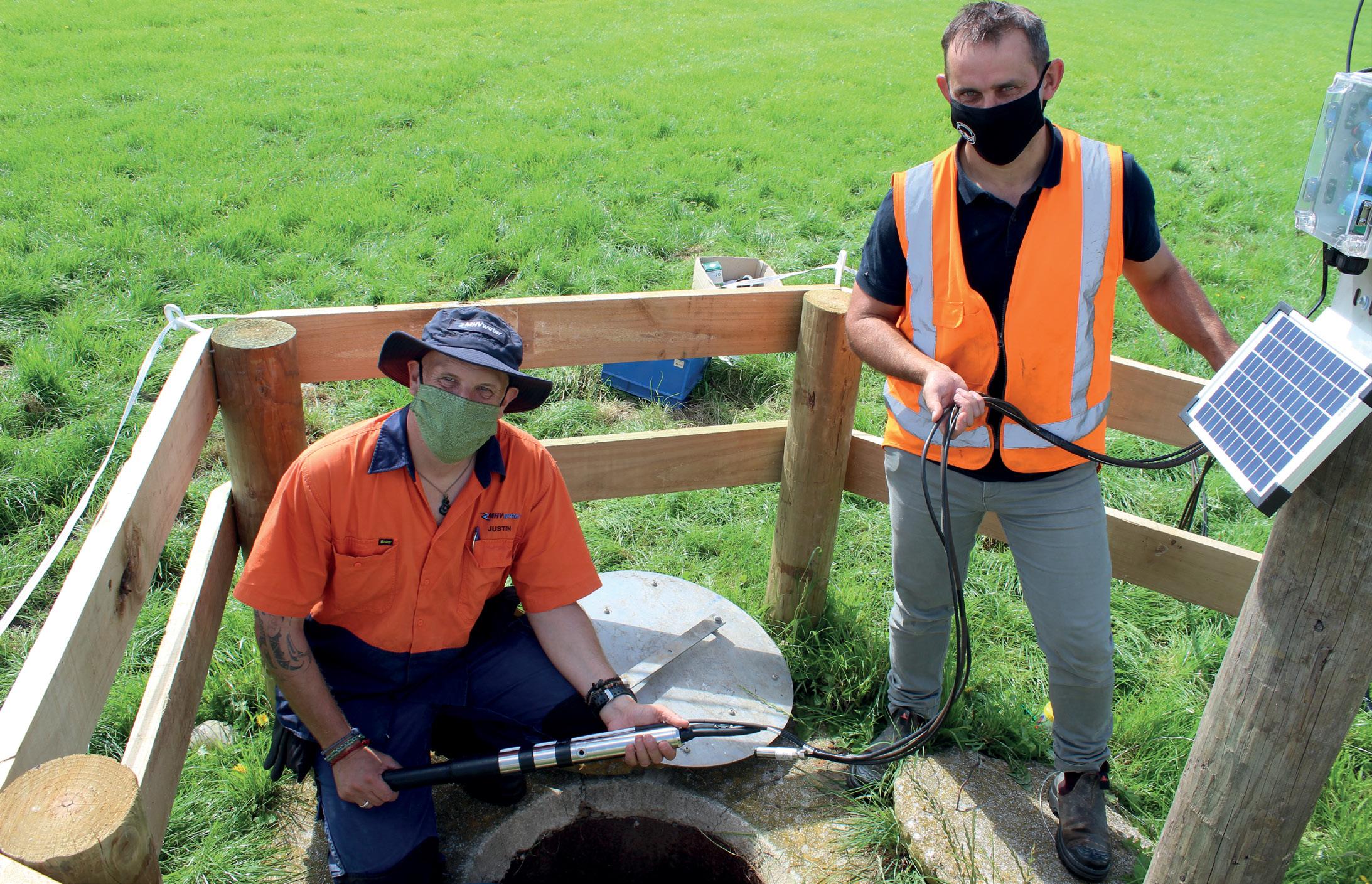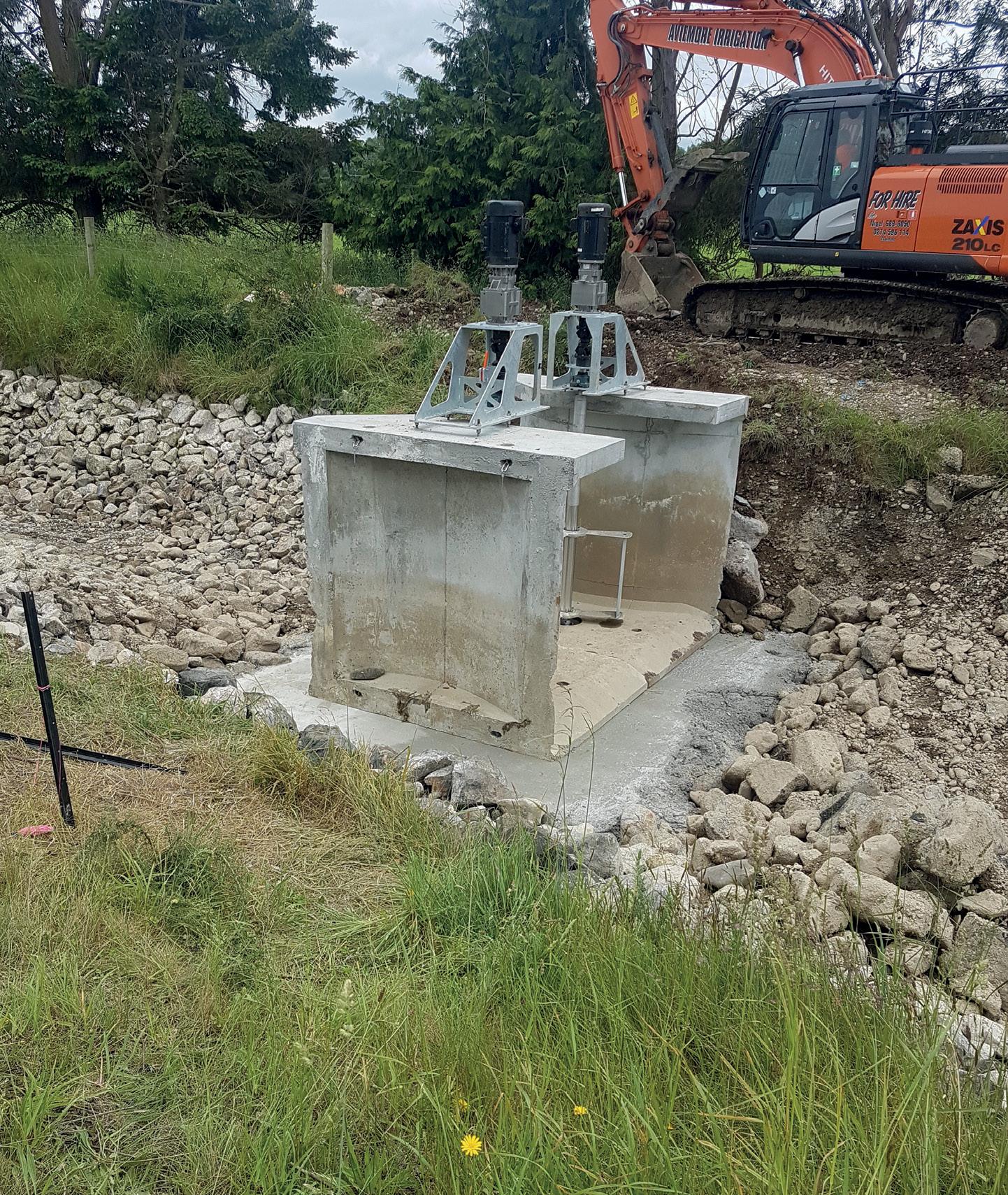
2 minute read
Freshwater research news
The Waterways Centre for Freshwater Management is a teaching and research centre based at both the University of Canterbury (UC) and Lincoln University (LU). The Centre offers a Postgraduate Diploma, Masters and a PhD in water resource management, and teaches both undergraduate and postgraduate water papers at both universities. Now in its 11th year, the Centre has growing numbers of academic staff, postgraduate students, and research projects. It is refreshing the water resource management postgraduate qualifications for 2023.
Among active research streams at the centre is Dr Leanne Morgan’s groundwater research group, made up of Ministry of Business, Innovation and Employment (MBIE) funded projects in sea level rise. Irene Setiawan (PhD candidate, LU), Amandine Bosserelle, and Connor Cleary (PhD candidates, UC) are looking at the impact of sea-level rise on coast aquifers and communities. Another MBIE funded project is looking at groundwater recharge from braided rivers, with Alice Sai Louie (PhD candidate, UC), Christy Songola (Masters candidate, LU) and two additional Masters student projects completed in 2021.
Advertisement
Another project, in collaboration with GNS Science, explores hindcasting a groundwater system to pre-European conditions, incorporating indigenous records of natural conditions, with Tara Forstner (PhD candidate, UC).
The Waterways Centre director, Professor James Brasington, specialises in geospatial modeling of rivers systems. He has developed a state-of-the-art airborne lidar facility at Waterways, using the first sensors of their kind in the southern hemisphere. James supervises several students who are using geospatial data to model river processes, addressing issues such as the impact of flood harvesting on sediment processes (Justin Rogers, PhD candidate, UC), and the use of machine learning to model flood inundation (Martin Nguyen, PhD candidate, UC). He also supervises postdoctoral researcher Justin Stout (UC) who is about to start on a two-year MBIE funded project that aims to develop new lidar and image processing technologies to derive seamless, high fidelity models of the river and coastal systems. James is also leading work on another five year MBIE programme (Future Fish) that aims to understand the effects of climate and land-use change on river dynamics and the associated impacts on both native and exotic fish communities. He is advertising for a new postdoctoral researcher and PhD student to work on this exciting project.
Dr Ed Challies works in the field of water policy and governance. Ed’s work is currently funded through the Our Land and Water National Science Challenge, MBIE Endeavour Fund, and Freshwater Improvement Fund. His work addresses catchment groups and community-based management in urban and rural contexts, and social-ecological feedback in freshwater management. His recent and current PhD supervision covers research in urban water governance (PhD candidates Rachel Teen and Tyler McNabb, UC), flood resilience (PhD candidate Unnathi Samaraweera, UC), and social practices of water use (PhD candidate Julie Clarke, LU).
Two new academic staff have joined Waterways in early 2022. Dr Shelley MacDonell is a hydrological scientist whose work focuses on headwater catchments, aimed at better understanding of water delivery to catchments, including timing and source contributions. Dr Issie Barrett completed her PhD in restoration ecology, investigating scenarios where communities remain degraded following successful habitat and water quality restoration. Her passion is the practice of river restoration and Karina Kelly (Masters candidate, UC) will be undertaking her research in this area.
Other students and research projects are also underway in 2022, which are a reflection of the work being done by industry, academia, and government to find answers to New Zealand’s freshwater management issues.


